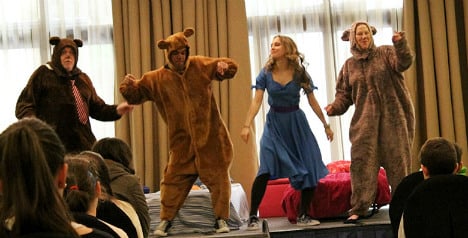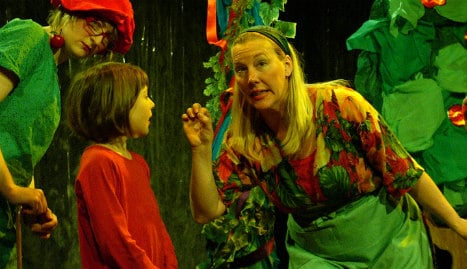Offering activities from storytelling and theatre workshops to staging full blown musical theatrical productions, “Stepping on Stage” is an English language drama club for adults and children in Madrid.
What is the concept of “Stepping on Stage”?
The concept is literal and figurative. To step on stage is to step out in front of an audience. Secondly the idea of steps is gradual. The youngest children start with storytelling (first step or stage), then move on to theatre workshops, and then as they grow in experience and language, they progress onto the highest stage which is performing in a proper play. The plays we put on are not generally simplified for learners, they are mostly original scripts in colloquial English.
Why did you decide to set up the group?
I worked for 14 years at a bilingual private school in Madrid. When I started, there were several extracurricular activities on offer but not 'drama in English'. I proposed the idea to the Headmistress and explained how this activity would benefit students interested in acting and the school for promoting a higher level of spoken English. The plan was accepted and students enrolled. By the time I left several teachers were needed as drama instructors to fill the demand. Setting up this group just seemed like a natural progression. Funnily enough two of our latest leading ladies are graduates of that school.
How does drama help in language learning?
First of all learning and memorizing a script in another language requires concentration and repetition and improves knowledge of grammar, pronunciation and fluency. Then, once the student interprets a particular role the language takes on meaning. When I write a script I find that I naturally adapt the role to fit with an individual’s talent and ability.

Stepping on Stage presents “Goldilocks” at an audience at a Madrid school. Photo:Steppingonstage.com
What kind of students get involved, is it always the outgoing ones who can sing and dance?
Not necessarily. Of course outgoing kids tend to be less timid in front of audiences but there have been cases in which shy children find a way of expressing themselves less self consciously because they are hidden in the role. Kids involved in sports also get involved. In Stepping On Stage most of the young actors play soccer, ski, play instruments, and belong to other clubs. Anyone involved in a play knows that it involves mental and physical strength.
Is English theatre popular among the Spanish community?
It is growing in popularity. Madrid especially is building its reputation as a theatre reference but there still aren't that many companies offering theatre in English.
Do you notice a difference between an American audience and a Spanish one?
Americans laugh louder. Spaniards are more reserved if they are watching a play in English but that doesn't mean they are enjoying themselves any less.
What sort of plays do you do?
Sometimes we stage well known plays, for instance Persephone (by Julia Donaldson) and Smike, a musical by based on Charles Dickens’ Nicolas Nickleby, but the majority of our plays are original works by club members. Next Sunday we will stage a musical called The Pirate and The Silver Sun Mermaid which is an entirely original work and is great fun for all the family.




 Please whitelist us to continue reading.
Please whitelist us to continue reading.
Member comments